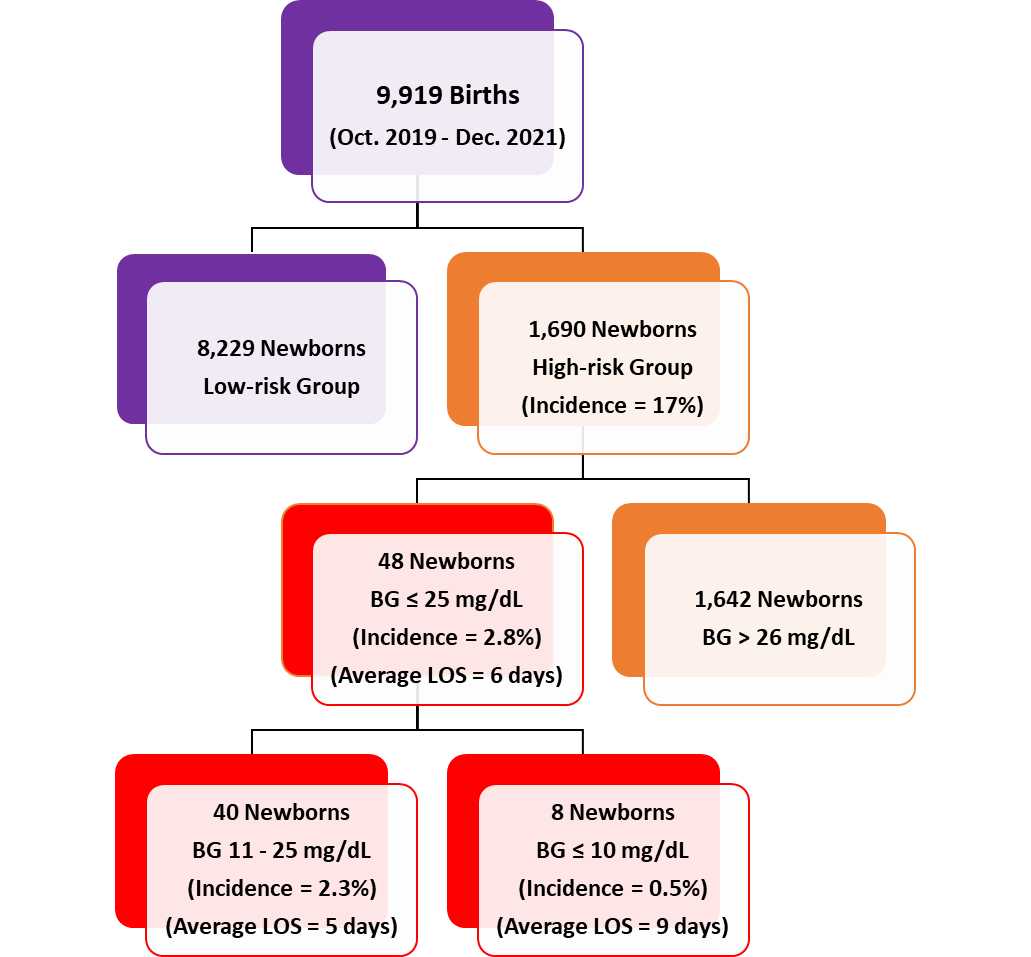Neonatal General
Neonatal General 7: NICU Practices 1
166 - Early Hypoglycemia Screening in High-Risk Asymptomatic Neonates
Sunday, April 30, 2023
3:30 PM - 6:00 PM ET
Poster Number: 166
Publication Number: 166.331
Publication Number: 166.331
Rania El-Khawam, New York University Long Island School of Medicine, Mineola, NY, United States; Vikramaditya Dumpa, University of Arkansas for Medical Sciences College of Medicine, Little Rock, AR, United States; Nazeeh N. Hanna, NYU Langone-Long Island, Mineola, NY, United States
- RE
Rania El-Khawam, MD
Assistant Professor
New York University Long Island School of Medicine
Mineola, New York, United States
Presenting Author(s)
Background: Hypoglycemia at birth has been associated with long-term poor neurodevelopmental outcomes, making it essential to detect and treat promptly. However, there is limited data on the optimal timing and intervals for glucose screening in high-risk for hypoglycemia (HRH) neonates.
Objective: This study aims to establish the incidence and associated risk factors for severe early hypoglycemia (defined as a blood glucose [BG] level ≤ 25 mg/dL in the first hour of life) in asymptomatic HRH neonates.
Design/Methods: Pre-prandial BG levels at 30 minutes of life were performed on all asymptomatic HRH neonates born at our institution over two years. Individual medical chart review was performed for data extraction, including demographics and clinical characteristics, risk factors for neonatal hypoglycemia, neonatal intensive care unit admissions, and length of stay.
Results: Of the total 9,919 births in the study period, 1,690 (17%) infants had risk factors for neonatal hypoglycemia, prompting screening at 30 minutes after birth. The incidence of having BG ≤ 25 mg/dL or an undetectable BG ≤ 10 mg/dL were approximately 2.8% and 0.47%, respectively. The main risk factors associated with severe early neonatal hypoglycemia in this population were late preterm infants, large-for-gestational-age infants, and those with multiple risk factors.
Conclusion(s): While glucose nadir is physiologic and helps to promote gluconeogenesis, our data demonstrate that early severe and critical neonatal hypoglycemia can occur in HRH neonates. Appropriate measures should be taken to promptly detect and treat severe hypoglycemia with routine early screening in selected high-risk neonates.



